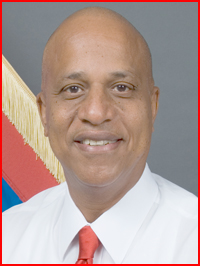
Mr. Chairman: I look back on the past six months ago during which I had the honour of chairing Caricom, and I am not dismayed. The Community had the privilege of hosting, in Trinidad and Tobago, the April Summit of the Americas, and we did so to deserved acclaim. Our diplomatic skills, particularly those of Prime Minister Manning, were much in evidence. And it pleases me to think that it was our principled, but carefully deployed, position on Cuba that was the platform for the later rescission of our sister country’s O.A.S. suspension.
The Inter-Sessional meeting in Belize also produced a recommitment to Caricom’s Single Market and Economy, though not an unthinking one. There was a frank assessment of the continuing challenges, and a candid concession that the way ahead will throw up obstacles that will be almost Bunyanesque. But there was unanimity in the determination to stay the course.
Our integration enterprise, though, has been made even more difficult by the global financial and economic crisis. The trajectory of Caricom’s effort to deal with this was initiated as early as the Bahamas Meeting at the start of 2008, and has accelerated as the crisis deepened. While we have not met with anything like the success we would have wished, some of what we did was truly noteworthy. As an example, cash-strapped OECS governments were nevertheless able to bail out an international bank. And coordinated regional action is helping to ameliorate the worst effects of the Clico failure. At the recent special conclave in Port of Spain, we also agreed on a number of new measures to broaden our intervention efforts. These include the pooling, streamlining and more effective disbursement of regional resources; the mounting of missions to non-traditional sources to augment those resources; the diversification and reshaping of our tourism product; and the restructuring of our economies to, inter alia, exploit the comparative advantage our language, literacy and trainability give us with respect to ICT.
There is, of course, one clear reason for the exiguousness of our success in combating the dislocation that the global crisis has visited upon us. It is the failure of the developed world, as the progenitor of the crisis, to discharge their responsibility to us. Oscar Wilde once said that all bad poetry, and presumably all bad art, is sincere. But the song and dance latterly produced by the developed countries regarding the measures necessary to repay their crisis-engendered debt to us, does not appear to possess even the dubious merit of sincerity. At the just concluded UN conference on the crisis, Caricom once again played its part. Underscoring the fact that we have long since come fully of age, it was Ambassador Gonsalves of St. Vincent and the Grenadines who helped lead the work that produced the outcome document. And Caricom was represented by five Prime Ministers. Developed Country Heads stayed away en masse though, resulting in even greater skepticism as to the materialization of the long-promised increase in multilateral assistance to small countries.
It is the same thing with climate change. For our small islands and coastal low-lying countries, this is quite literally a matter of life and death. But the developed world seems to have great difficulty in even agreeing the necessary adaptation and mitigation measures, much less in funding them. In the United States, the CAP and Trade Bill passed by the House is thin and wafery, milk and water. But even its remarkable retreat from campaign goals will not give it much chance of passage in the Senate. Instead, on this issue the Right seems resurgent. Emboldened by a new clutch of pseudo-scientific enablers, the Right is making public, strident, even gleeful denials that global warming exists. The auguries are distinctly not favourable for success at December’s Copenhagen summit.
But Naipaul said a long time ago that the world is what it is; that men who are nothing, or allow themselves to become nothing, have no place in it. Well, we in the Caribbean say to the developed countries, to what the President of Ecuador called “the clan of the powerful,” that we refuse to become nothing. We will make fast our place in the world, our role in the universal project. In our struggle we will make common cause with, and be buoyed by, the similar determination of those that are forging a new Latin American consensus for change. But most of all we will be lifted by our own talents, our own proud spirit. The earth in these climes is especially rich, and natural bounty our God-given endowment. Despite the hammer blows of this unprecedented crisis then, bright prospects and sunlit vistas will continue to be a part of both our topography and our psychology.
I thank you.




